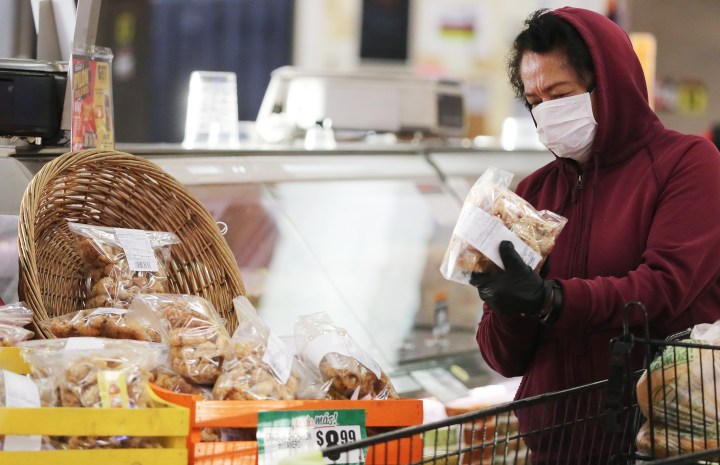
What business can and can’t do about mask mandates

As vaccination rates rise, some parts of the U.S. are relaxing their masking requirements.
Several states — including Alabama, Arkansas, Indiana, Mississippi and Texas — have recently lifted mandates requiring people to wear masks in public, although in Indiana, it remains mandatory at state facilities and COVID-19 testing sites.
Despite these new policies, businesses can still require employees and patrons to wear masks.
“Generally speaking, if you own a business, you can prescribe reasonable rules for your employees, and masking would fall into that,” said Scott Burris, a professor at Temple Law School. “And if you have a business open to the public, you can have non-discriminatory conditions for entry. ‘No shirt, no shoes, no service’ is the same as no mask.”
Burris said the real problem is: what do customers say, what do customers do, and how far will businesses need to go to enforce these rules? He noted that enforcement is easiest in places where the sentiment is pro-mask, and difficult in areas where most people identify as anti-mask.
“If you’re in a community where everybody seems to be wearing a mask, that business doesn’t have to say anything. And it’s pretty easy for the business to turn somebody away and refuse to serve them,” Burris said. “But you know, the harder part is when you start to get into a community or a setting where we’re masking is more disputed. And then you’re asking yourself everyday: ‘Do I want to fight with half my customers?’ It’s very hard for businesses to sustain that. It’s just too much expenditure of effort.”
When it comes to expert opinion, it’s good practice to continue wearing masks indoors, pointed out Patrick E. Jackson, a professor of infectious diseases at the University of Virginia.
“I think that there is some threshold of the level of community transmission of COVID-19 and the proportion of population that’s vaccinated at which point you would say that it’s no longer necessary. But I doubt there’s any place in the United States that would meet those criteria right now,” Jackson said.
Alabama, Arkansas, Indiana, Mississippi and Texas lag behind dozens of other states in terms of the percentage of distributed vaccines that have been administered, with Mississippi and Alabama ranking last, according to the Centers for Disease Control and Prevention.
Health experts have urged the public to wear better masks, especially front-line workers who spend time indoors and face high risks.
States like California, New York and Oregon continue to have mask mandates in place, even as vaccination rates rise. Oregon’s top health official is considering indefinitely extending rules for requiring masks at businesses within the state.
And some large retailers, like Walmart and Target, are also enforcing these rules at their businesses.
“I think it just makes a lot of sense to continue masking as a general rule, because there still are a lot of people out there who weren’t vaccinated and are potentially vulnerable,” Jackson said.
There’s a lot happening in the world. Through it all, Marketplace is here for you.
You rely on Marketplace to break down the world’s events and tell you how it affects you in a fact-based, approachable way. We rely on your financial support to keep making that possible.
Your donation today powers the independent journalism that you rely on. For just $5/month, you can help sustain Marketplace so we can keep reporting on the things that matter to you.


















